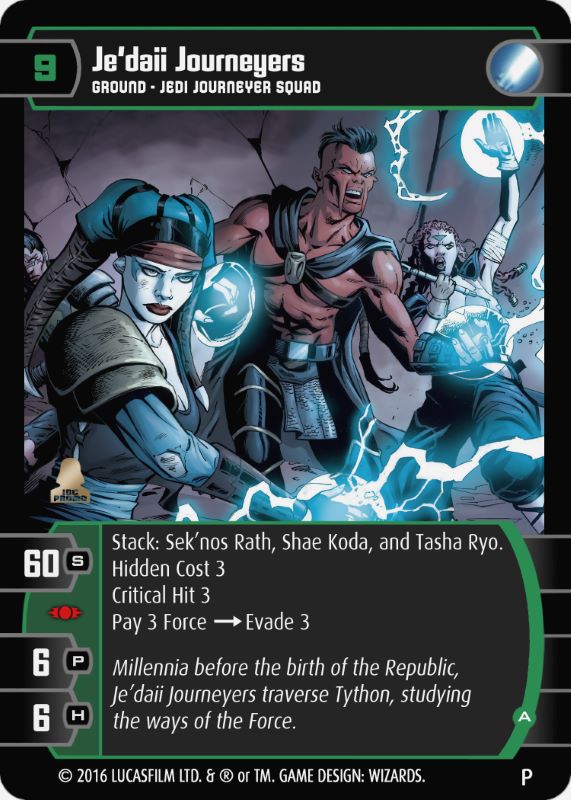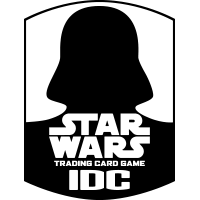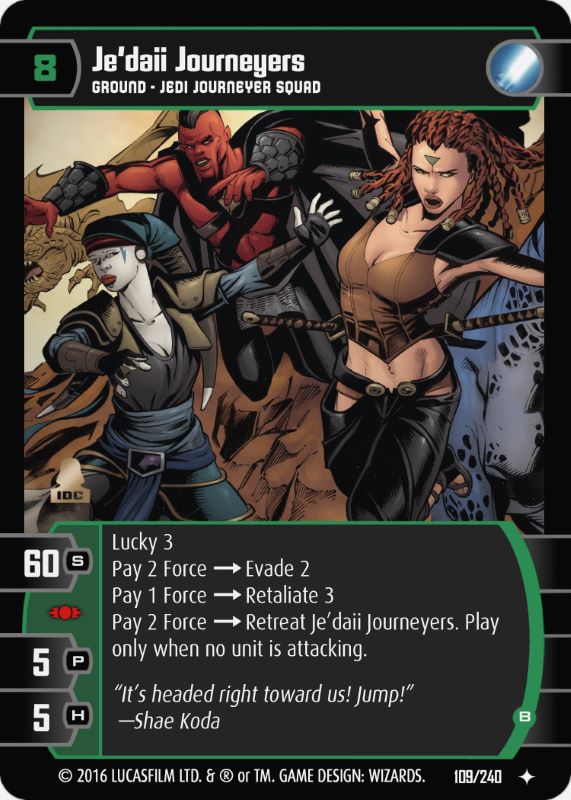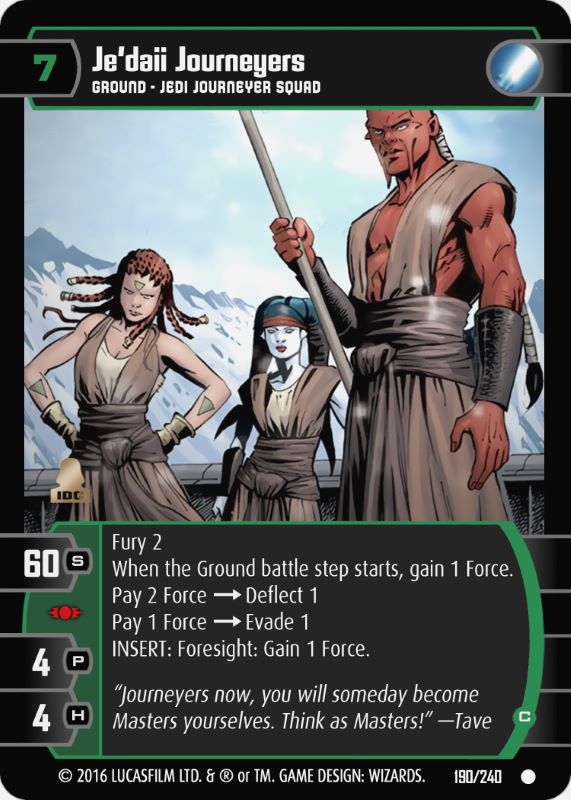
9
60
6
6
Side
Light
Rarity
Rare
Version
A
Type
Ground
Points
3
Subtype
Expansion
Abbreviation
Card Number
/ 270
Author/Publisher
Independent Development Committee
Publish Date
1/3/2017

Card Text
Stack: Sek'nos Rath, Shae Koda, and Tasha Ryo.
Hidden Cost 3
Critical Hit 3
Pay 3 Force Evade 3
Keywords
- Critical Hit
- Critical Hit X: A cumulative ability triggered during the pending damage POP that means, "If you rolled at least one natural six with this unit's attack dice, this unit does X more damage for this attack." Only one natural "6" counts in the attack roll after re-rolls. If a unit gets the Critical Hit ability after you roll attack dice, it's too late to affect the damage. Accuracy can't increase the die roll to a natural "6". However, you or your opponent may use an effect to re-roll dice to affect the number of natural sixes. (You only count the six, if any, from the roll used for the attack.) Critical Hit applies only to dice rolled for an attack, not to dice rolls for abilities like Retaliate.
- Evade
- Evade X: A layered ability activated during the damage prevention POP that means, "Prevent up to X damage to this unit." You can play Evade only once for each instance of damage. You don't have to use all of the Evade. You choose how much damage to Evade up to X, even if the full amount of damage or more is pending.
- Hidden Cost
- Hidden Cost X: A selective, static effect that means, "As long as you have a number of build counters on this card equal to X or the unit's current build cost (whichever is less), you may complete it anytime by paying Force for the remaining build cost, if any." Effects and stacking rules may reduce the build cost. You do not need to pay Force if the build cost is within the Hidden Cost integer. You can deploy it to the build zone. Hidden cost can only be played if the card is partially built and has the required number of build counters on it. You may use Hidden cost anytime, even during any Play-or-Pass chances not reserved for re-roll, damage prevention, or disrupt POP chances. If there are a number of build counters on the unit equal to or greater than the Hidden Cost integer, you do not need to pay any Force. You may not use Hidden Cost to deploy a Pilot to a unit.
- Stack
- Stack: [List]: A layered, static ability that means "You may put a listed card under this unit as part of its stack." The listed cards can't be on top of the stack. Cards with the Stack ability don't count as the cards listed and don't contest with any of the listed cards. If a card is listed by its name you can't stack a card with a different name unless it satisfies a different criteria in the [list] or they represent the same unit. (See the "Different Versions with Different Names" section in the rules PDF) Unlike a normal stack, you can only have one version of each unique unit from the [list] in the stack. Non-unique cards listed on a card with the Stack ability are permitted to form a part of the stack and you can have multiple cards with the same name in the stack as long as they are non-unique. Cards added to a card's stack using the Stack ability cannot exceed the 4 card maximum normal stacking rule. If a unique card with the Stack ability has another version of itself move to the top of it's stack, discard any cards in the stack that can't stack with the new version on top of the stack.
Other Versions
You must be logged in to favorite a card. Click here to login or register.

